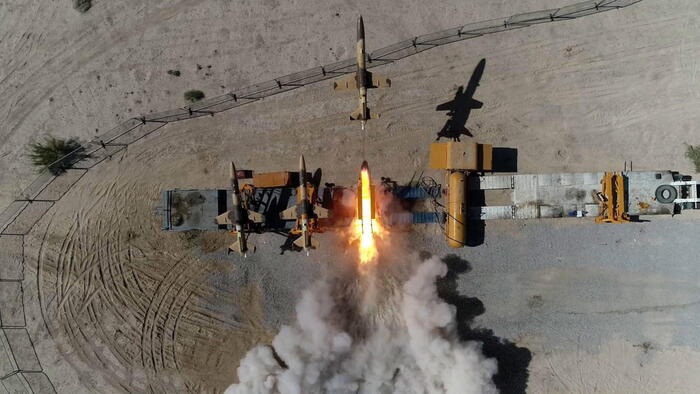The material available to the US media "The Intercept" and "New York Times" has about 700 pages - and great political explosive power. Punctured Iranian intelligence documents thus prove the great influence of the Shiite country on neighboring Iraq and its government.
The news sites simultaneously published articles on Monday about the extensive documents sent to Tehran by Iranian agents in Iraq in 2014 and 2015. "The Intercept" got this leaked and shared with the "New York Times". The authenticity of the documents had been checked, both media report.
According to The New York Times, the papers show how Iran had begun to expand its power in Iraq following the fall of long-time ruler Saddam Hussein in 2003. They also showed how Iran has outmaneuvered the US on every occasion in the race for influence ".
Iran has been expanding its influence in Iraq for years
It has been obvious for some time that Iran has been expanding its influence in the region and in Iraq for years. In the parliamentary elections in May 2018, three Shiite parties made it to first places, with low turnout. Unlike the Sunnis, most Shiite believers are strictly hierarchical, and in Iran, the government is controlled by Shiite clerics. The majority of the Iraqi population belongs to the Shi'ite faith of Islam.
The documents quoting "The Intercept" and the "New York Times" now clearly show in detail Tehran's close contacts to the highest political circles in Iraq. It is said that the current head of government Adel Abdel Mahdi has a "special relationship" with Iran. Reports of high-diplomatic conversations with their Iraqi counterparts were routinely transmitted to the Iranians, writes the New York Times.
Iran's military plays a crucial role. In Iraq, but also in Lebanon and Syria, the Qassem Kuds Brigades determine Soleimani, an elite unit of the Iranian army, for example, by filling ambassador posts. It is not the Ministry of Foreign Affairs that decides who leads the diplomatic missions, but the Kuds Brigades. Their reports to Tehran were sent directly to the Iranian National Security Council.
In addition, a close adviser to the former Iraqi parliament president was a spy of Iran. The Iranians also recruited an earlier CIA spy who became unemployed following the withdrawal of the US from Iraq in 2011 and described details of Teheran's past activities.
Iran and the US compete for influence in Iraq. Tensions in the region have increased sharply since US President Donald Trump abandoned the nuclear deal with Tehran.
Iraq continues to deploy US soldiers supporting the army in its fight against the Islamic State (IS) militia. Iran, for its part, promotes influential Shiite militias in Iraq, independent of the Iraqi government and closely associated with Tehran. Observers warn that the conflict between the US and Iran could escalate in Iraq.
The situation in Iraq is also tense because demonstrators have been taking to the streets for weeks against political leadership and widespread corruption. The protests in the capital Baghdad and in the majority of Shiites inhabited south are partly directed against Iran. Iraq is still suffering from the consequences of years of fighting ISIS.







